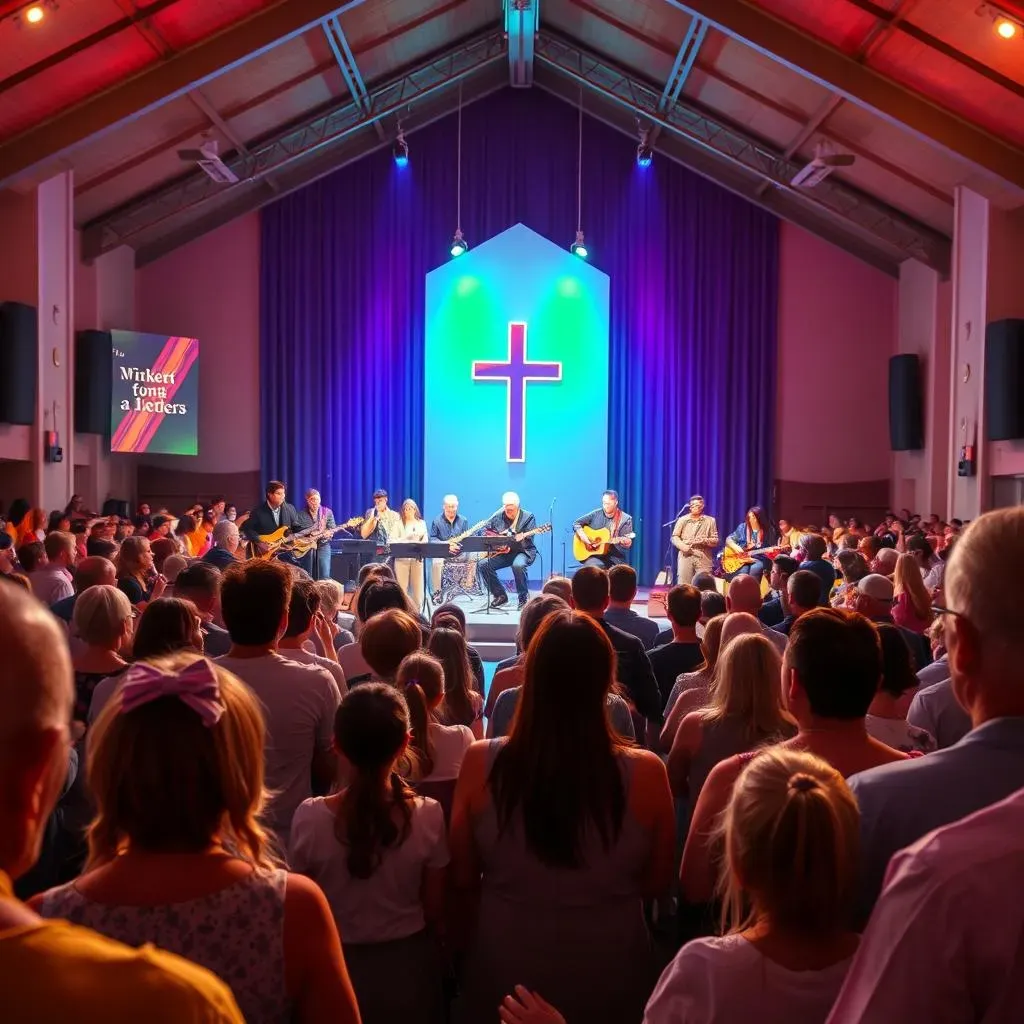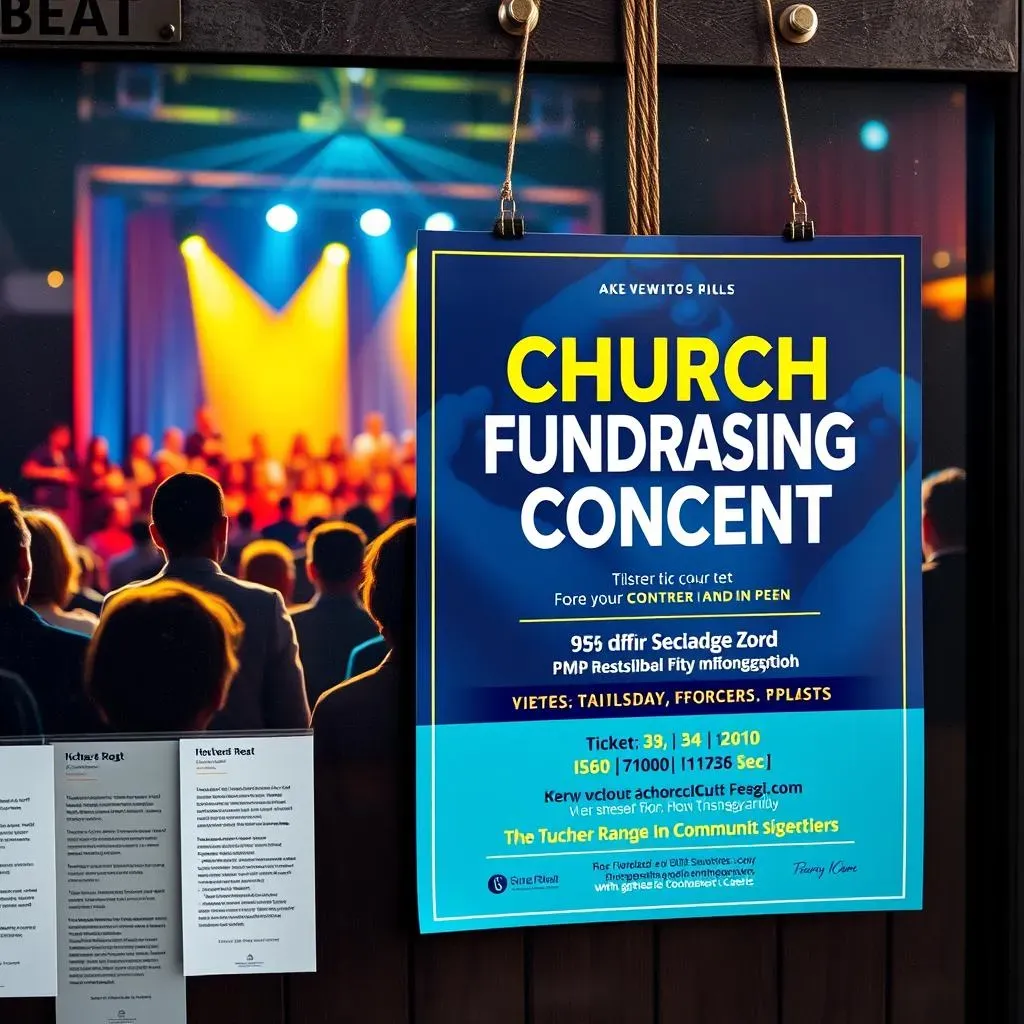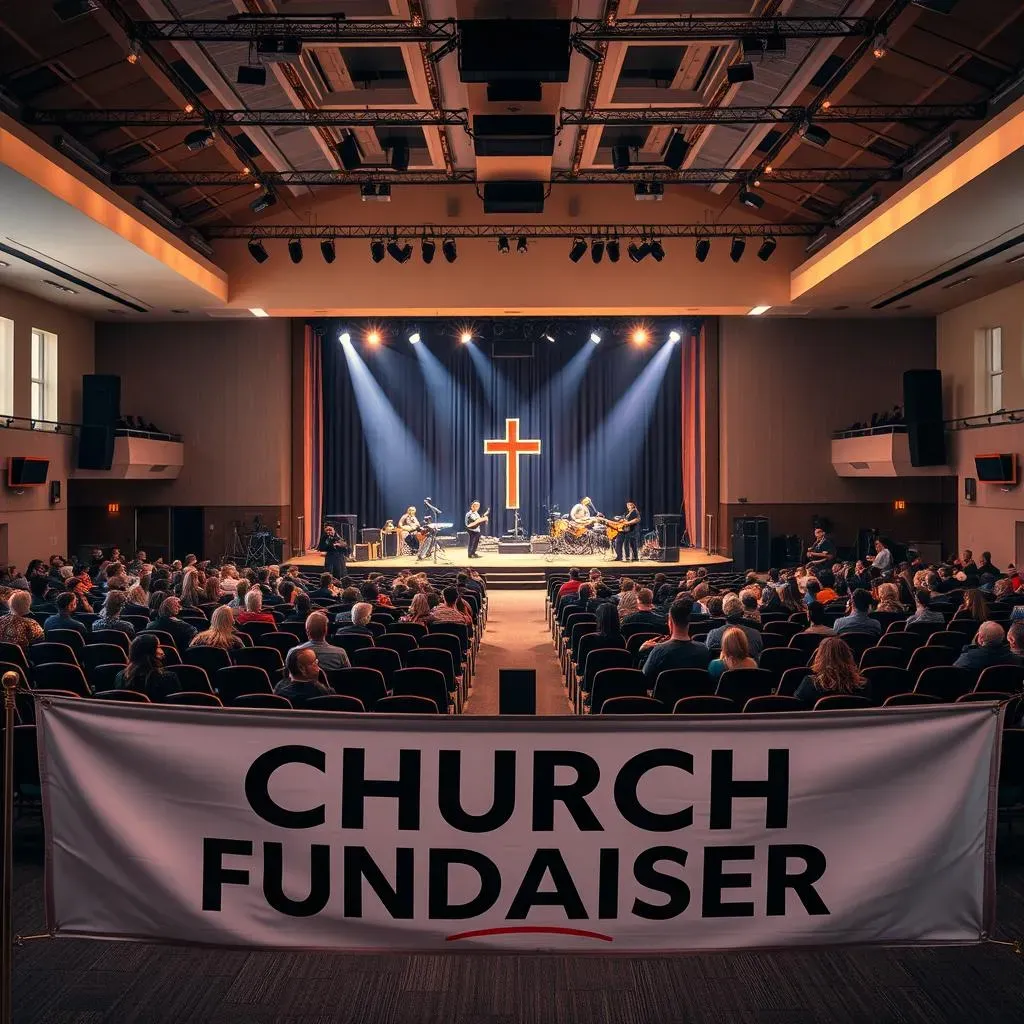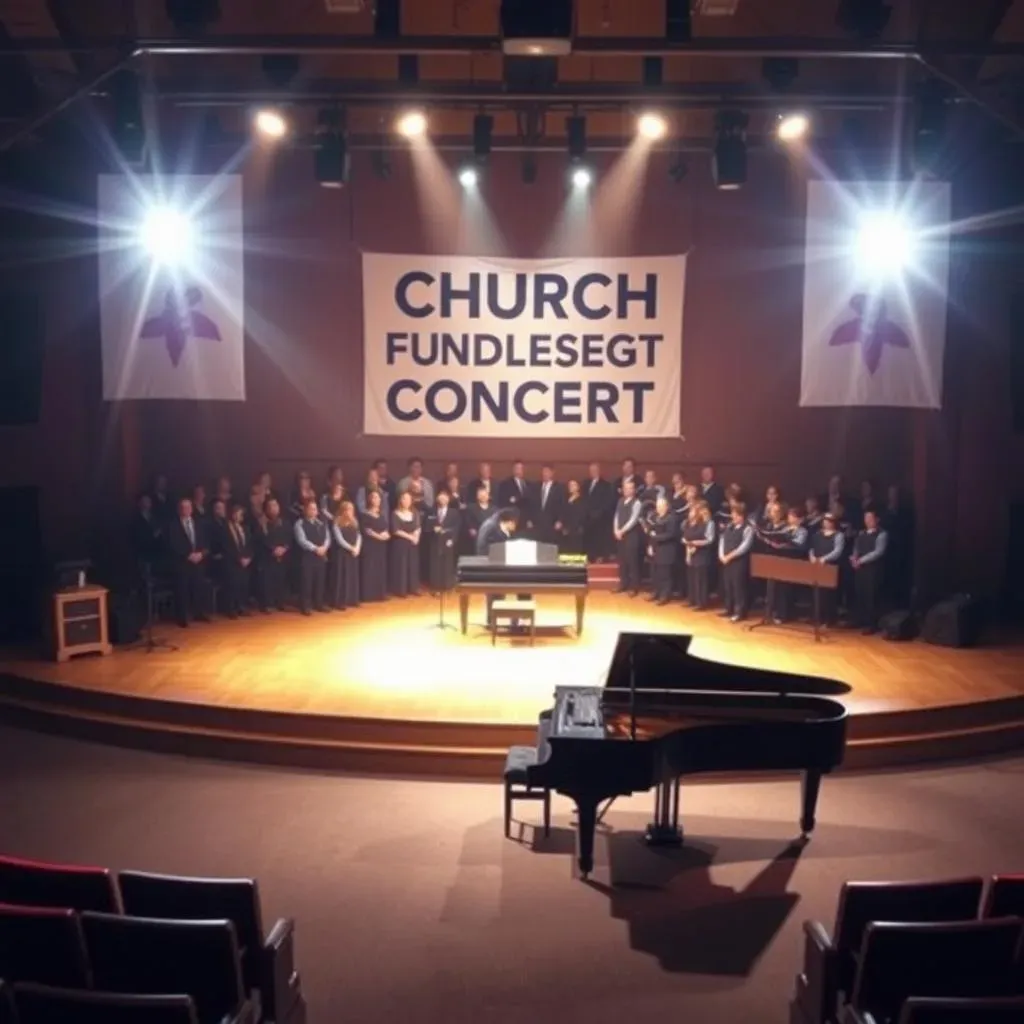Table of Contents
Dreaming of boosting your church's funds while creating a memorable community event? Then you're in the right place! This comprehensive guide tackles everything you need to know about "how to organize a church fundraising concert." We'll walk you through the process step-by-step, from setting realistic goals and crafting a budget that works for you, to securing talented performers who resonate with your congregation and beyond. Learn how to effectively promote your concert to reach a wide audience, maximizing your fundraising potential. We'll also cover the essential logistical details, including venue selection, ticket sales, and managing finances efficiently. By the end of this article, you'll be equipped with the knowledge and confidence to plan a spectacular concert that not only raises vital funds but also strengthens your church community. Get ready to transform your fundraising dreams into a reality – let's get started!
Planning Your Church Fundraising Concert: Setting Goals and Budget

Planning Your Church Fundraising Concert: Setting Goals and Budget
Defining Your Fundraising Goal
First things first: What's the big picture? Are you aiming to raise money for a specific project, like church renovations or a mission trip? Or are you hoping to bolster your general operating budget? Knowing your ultimate goal will guide every decision you make, from choosing performers to setting ticket prices. Think of it like building a house – you wouldn't start laying bricks without a blueprint!
Consider what you’d like to achieve. Be realistic. If you’re a small church with limited resources, aiming for $10,000 might be ambitious, but $1,000 is more attainable. Setting a realistic goal will keep the process enjoyable and less stressful. For more ideas, check out our guide on best church fundraising ideas for small congregations.
Goal | Estimated Cost | Fundraising Target |
|---|---|---|
New sound system | $5,000 | $6,000 (to cover expenses and achieve goal) |
Mission Trip to Mexico | $2,000 | $2,500 (to cover expenses and achieve goal) |
Creating a Realistic Budget
Once you have your goal, it’s time to get down to brass tacks: the budget. This involves identifying all potential costs associated with the concert. Think venue rental, performer fees, marketing materials, equipment rental (sound, lighting), insurance, and refreshments. Don't forget those often-overlooked costs like printing tickets or creating digital marketing assets. Consider using a spreadsheet to keep track of everything.
Remember, unexpected expenses can arise. Build a small buffer into your budget to account for any unforeseen circumstances. For more detailed information on budgeting for church events, you might find our guide on planning a church fundraising event helpful. It’s better to be prepared than scrambling at the last minute!
- Venue Rental
- Performer Fees
- Marketing & Advertising
- Equipment Rental
- Refreshments & Food
- Contingency Fund (for unexpected expenses)
Securing Funding Sources Beyond Ticket Sales
Don't put all your eggs in one basket! While ticket sales are a crucial part of the fundraising equation, explore other avenues. Sponsorship from local businesses is a great option. Many businesses are eager to support community events and will happily donate in exchange for logo placement on marketing materials or verbal recognition during the concert. Consider approaching local businesses that align with your church's values.
You could also incorporate a silent auction or raffle during the concert. This adds an element of excitement and provides another avenue for donations. Remember to obtain all necessary permits and licenses before proceeding with any fundraising activities. For more tips on attracting sponsors, you might want to look at our guide on promoting church fundraisers.
Finding the Right Talent for Your Church Fundraising Concert

Finding the Right Talent for Your Church Fundraising Concert
Identifying Your Target Audience's Musical Preferences
Before you start searching for performers, consider who you're trying to attract. Are you aiming for a multi-generational crowd, or is your target audience primarily families with young children? Knowing your audience's musical tastes will help you select performers who will resonate with them and fill the seats. Do you want a gospel choir, a rock band, or a mix of different genres? Think about the overall vibe you want to create for the concert. For more creative ideas, you might find inspiration in our article on innovative church fundraising ideas.
Perhaps you could survey your congregation to gauge their preferences. Social media polls are also a great way to get a feel for what kind of music your community enjoys. Remember, a successful concert is about more than just raising money; it's about creating a fun and engaging experience for everyone involved. Tailoring your musical lineup to your audience’s preferences will significantly increase attendance and enjoyment.
Audience Segment | Musical Preferences | Potential Performers |
|---|---|---|
Families with young children | Upbeat pop, children's music | Local children's choir, family band |
Young adults | Contemporary Christian, pop | Local worship band, contemporary Christian artist |
Older adults | Gospel, traditional hymns | Church choir, gospel singer |
Reaching Out to Performers and Negotiating Contracts
Once you have a list of potential performers, it’s time to reach out! Start by contacting local musicians, bands, or choirs. Many talented individuals and groups are happy to donate their time to a worthy cause, especially if it benefits a church they are familiar with. However, be prepared to offer compensation if their services are not donated. Always have a written contract outlining payment terms, performance times, and other relevant details. This protects both you and the performer.
When negotiating contracts, be clear and upfront about your budget. Don't be afraid to ask for discounts or barter services (e.g., offering free advertising in return for reduced fees). Remember, a successful fundraising concert is a collaboration. Building strong relationships with your performers will ensure a smooth and enjoyable experience for everyone. For further advice on planning church events, take a look at our guide on planning a church fundraising gala, which offers valuable insights into managing various aspects of large-scale events.
- Contact local musicians and bands
- Negotiate fees and payment terms
- Draft a written contract
- Confirm performance times and requirements
- Establish clear communication channels
Promoting Your Church Fundraising Concert: Reaching a Wider Audience

Promoting Your Church Fundraising Concert: Reaching a Wider Audience
Leveraging Social Media for Maximum Reach
In today's digital age, social media is your best friend! Create engaging posts showcasing your performers, highlighting the cause, and sharing ticket information. Use eye-catching visuals and videos to capture attention. Don't forget to use relevant hashtags to broaden your reach. Consider running targeted ads on platforms like Facebook and Instagram to reach specific demographics within your community. Think about incorporating countdown timers and behind-the-scenes glimpses to build excitement and anticipation. For more in-depth guidance on utilizing social media for church fundraising, check out our comprehensive guide on social media strategies for church fundraising.
Remember to consistently update your posts and engage with comments and messages. This fosters a sense of community and encourages interaction. A strong social media presence can significantly boost ticket sales and overall awareness of your concert. Don't underestimate the power of sharing! Encourage your performers to promote the event on their own social media channels as well; this will amplify your reach exponentially.
Platform | Strategy | Example Post |
|---|---|---|
Event creation, targeted ads | "Join us for a night of amazing music supporting [Cause]! Tickets available now!" | |
Story highlights, influencer outreach | Video clip of a performer with a call to action to buy tickets |
Exploring Traditional and Non-Digital Promotion Methods
While digital marketing is essential, don't overlook the power of traditional methods. Print posters and flyers and distribute them around your community – at local businesses, community centers, and even bulletin boards in neighboring areas. Word-of-mouth is still incredibly powerful; encourage your congregation and performers to spread the word to their friends and families. Consider partnering with local radio stations or newspapers to advertise your concert; this can reach a wider audience beyond your immediate circle. For more creative and effective ideas, be sure to check out our post on promoting your church fundraisers effectively.
Think outside the box! Could you partner with other local churches or organizations to cross-promote the event? Could you offer a special discount for early bird ticket purchases or group bookings? Consider offering a special pre-concert meet-and-greet with the performers for an added incentive. Remember, creativity is key! The more diverse your promotional strategy, the greater your potential for success. Every little bit helps in spreading the word and increasing attendance.
- Print posters and flyers
- Word-of-mouth marketing
- Local media partnerships
- Cross-promotion with other organizations
- Ticket incentives and discounts
Managing Your Church Fundraising Concert: Logistics and Finances

Managing Your Church Fundraising Concert: Logistics and Finances
Securing a Venue and Necessary Permits
Finding the right venue is key! Consider factors like capacity, acoustics, accessibility, and available equipment. Does the venue have a stage, lighting, and sound system? Or will you need to rent these separately? Don't forget to check the venue's policies regarding alcohol, food, and decorations. And remember to factor in parking and accessibility for your attendees. A great venue sets the stage for a fantastic concert experience. For more information on finding suitable spaces, you may find our guide on organizing a church fundraising concert useful.
Before you finalize your venue, make sure you understand the permit requirements for your area. You'll likely need permits for amplified sound, potentially for selling food or beverages, and possibly even for the event itself depending on the size and nature. Failing to obtain the necessary permits could lead to fines or even cancellation of your event. It's always best to be proactive and get the paperwork sorted well in advance. For a comprehensive checklist, you can refer to our FAQs on church fundraising.
Venue Feature | Cost | Notes |
|---|---|---|
Rental Fee | $500 | Negotiate a lower rate if possible |
Sound System Rental | $200 | Check if the venue provides one |
Permits | $100 | Check local requirements |
Managing Ticket Sales and Registration
How will people get tickets? Will you sell them online through a platform like Eventbrite or use a more traditional method? Will you offer different ticket tiers (e.g., general admission, VIP)? Deciding on your ticket sales strategy early on will streamline the process. Consider offering early bird discounts to incentivize early ticket purchases. Online ticketing systems often offer features like automated email reminders and reporting tools, which can save you time and effort. This helps with organization and keeps everything running smoothly.
If you choose online ticketing, make sure to clearly communicate the ticket purchase process on your website and social media. Provide detailed instructions and FAQs to address any potential questions. If you opt for in-person ticket sales, ensure you have enough volunteers to handle transactions efficiently. Remember, a smooth and hassle-free ticketing process will enhance the overall attendee experience. For more detailed guidance on ticketing and registration, you can review our article on planning a church fundraising event.
- Online ticketing platform (Eventbrite, etc.)
- In-person ticket sales
- Ticket pricing strategy
- Promotional materials (e.g., flyers, posters)
- Volunteer recruitment for ticket sales
Post-Concert Financial Reporting and Thank You's
Once the concert is over, don't forget the important post-event tasks! Accurately track all income and expenses. Prepare a detailed financial report outlining all income streams (ticket sales, sponsorships, donations) and expenses. This report will help you assess the success of your fundraising efforts and inform future events. Sharing this information with your congregation fosters transparency and builds trust. Consider sharing a summary of your financial report in your next church newsletter.
Don't forget to express your gratitude to everyone who contributed to the concert's success! Send thank-you notes to sponsors, performers, volunteers, and attendees. Highlight the impact of their contributions and how the funds raised will benefit your church or chosen cause. This strengthens relationships and encourages future support. A well-crafted thank-you note goes a long way in fostering goodwill and community spirit. For examples of effective thank-you notes, our article on writing a church fundraising letter provides helpful templates and examples.
